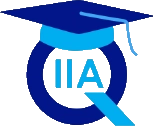ISO Accreditation
Accreditation to an ISO standard is a formal recognition that a testing laboratory, inspection body, certification body, calibration laboratory, or other organisation meets specific internationally recognised standards for competence and impartiality.
Gaining ISO accreditation provides assurance to customers, regulators, and other stakeholders that the accredited organisation operates competently, impartially, and in accordance with recognised standards. It enhances confidence in the reliability and validity of the results or services provided.
What is ISO 15189 Accreditation?
ISO 15189 is the ISO standard for medical laboratories. At UK NEQAS IIA, our aim is to support medical laboratories in achieving and maintaining ISO 15189 accreditation through our ISO 17043* accredited EQA schemes. We provide guidance and assistance to help laboratories meet the highest standards of quality and trustworthiness. Contact us today for more information on how we can help.
(* ISO 17043 the ISO standard for Proficiency Testing (EQA) providers.)
How Does ISO 15189 Accreditation Benefit Organisations?
Compliance with ISO 15189 enhances the overall quality of a laboratory's services and products, thereby directly improving the quality of health care. This can enhance a medical laboratory's reputation, credibility, and marketability. It opens up opportunities for business growth, facilitates access to new markets, and demonstrates a commitment to quality and continuous improvement.
FAQS
What does ISO Stand for?
ISO stands for the International Organisation for Standardisation. It is a group of committees that put together standards (or tests) for a wide range of activities including testing in laboratories, making products, and offering a service.
What does ISO 15189 have to say about EQA and ISO 17043?
Section 7.3.7.3 of ISO 15189 states that to comply with the standard, a medical laboratory shall monitor its performance of examination methods by comparison with results of other laboratories. This includes participation in EQA programmes appropriate to the examinations and interpretation of examination results. Those EQA programmes, to the extent possible, shall fulfil ISO/IEC 17043 requirements.

